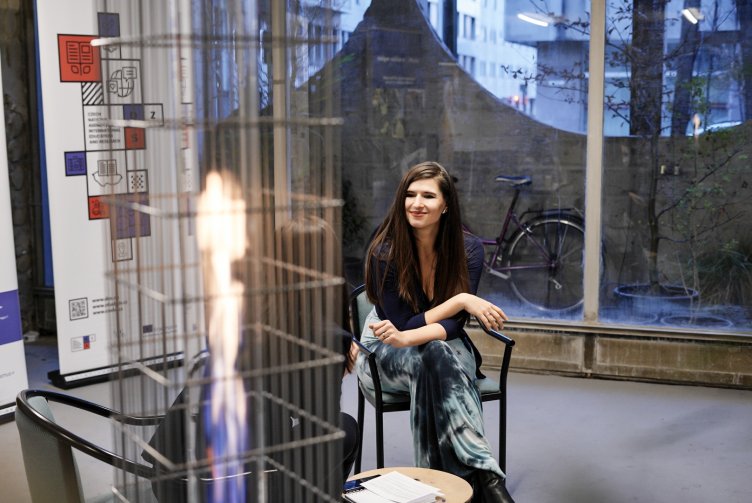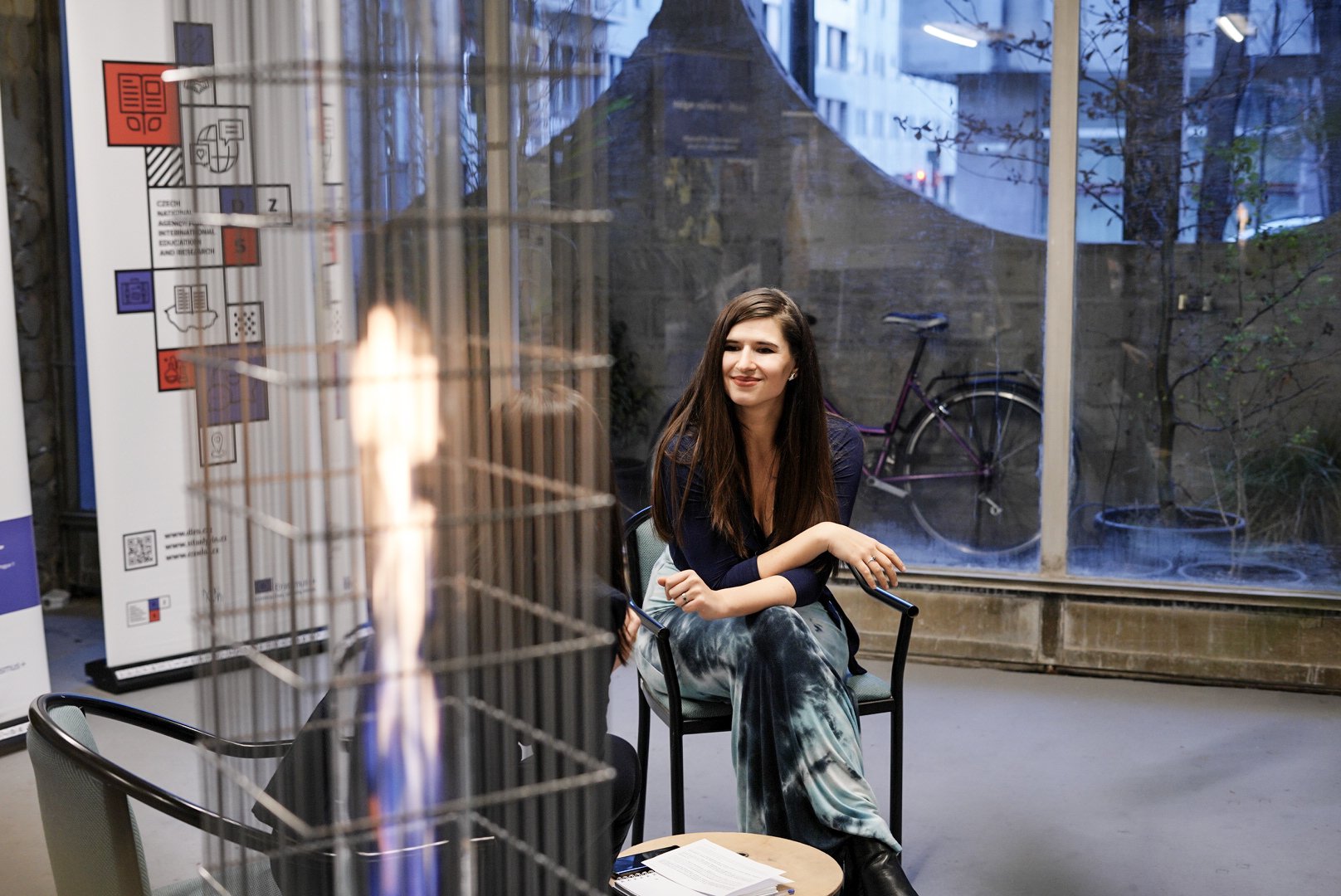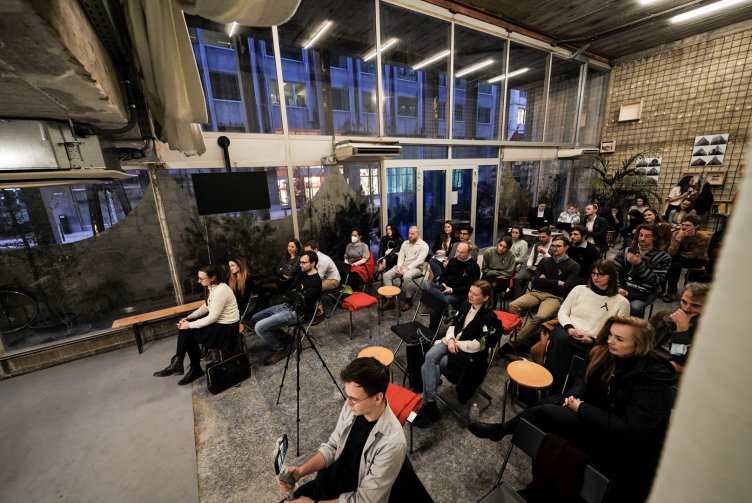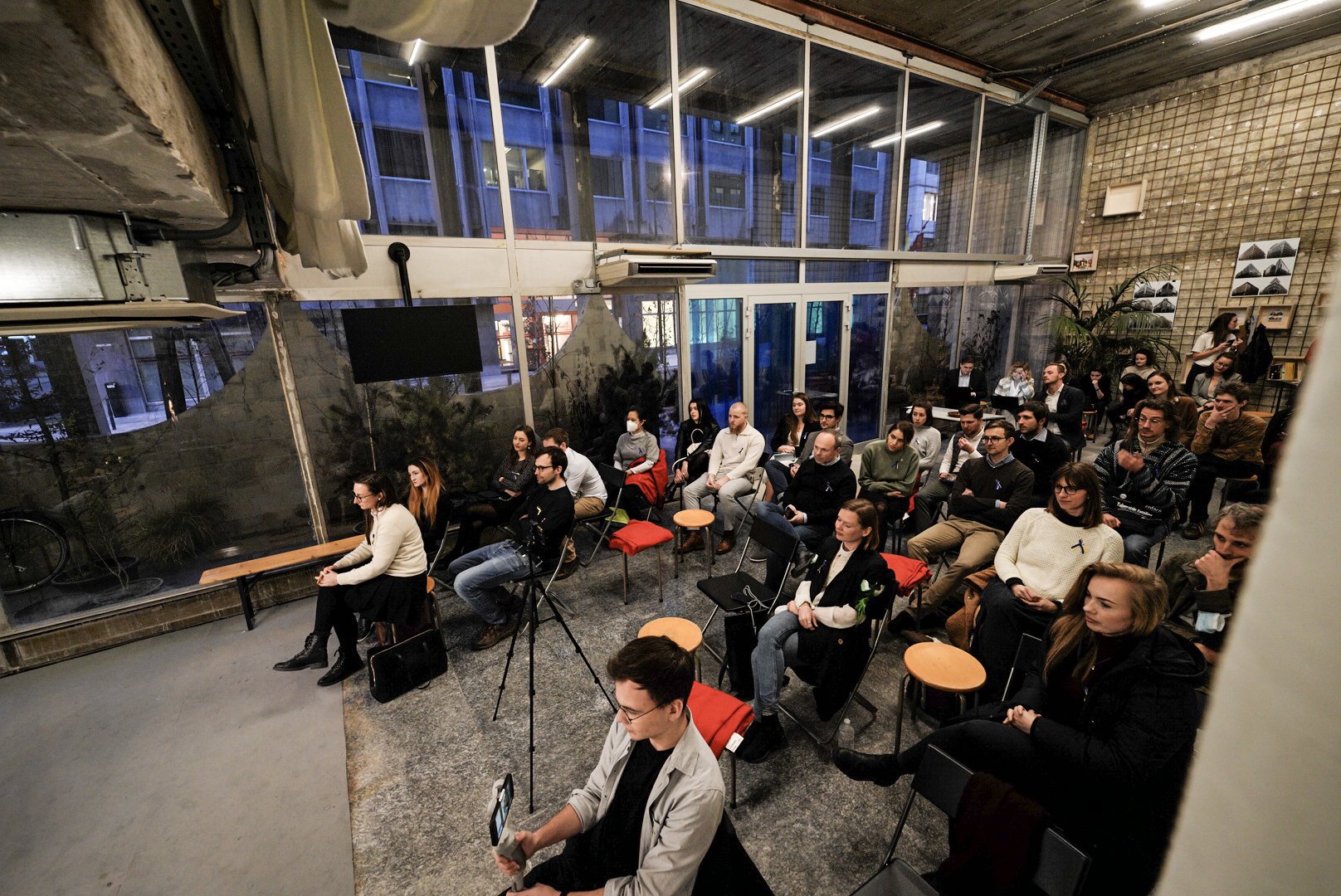How does space weather affect our lives?
Discussion with Lenka Zychová on space weather attracted almost 60 participants.
On 8 March 2022, the Czech Liaison Office for Education and Research (CZELO) together with the Representation of the South Moravian Region in Brussels and the Czech Center in Brussels organized another Science Café. The invitation was accepted by an astrophysicist Lenka Zychová, who currently works as a Space Weather Scientist at the Royal Belgian Institute for Space Aeronomy, Belgium. She and her colleagues provide predictions and information about space weather to people and companies whose work is sensitive to space weather (such as spacecraft operators, aviation, power grids operators, etc.). The event, which took place physically, attracted almost 60 participants.
Science Café is a forum for discussion of current work and interesting scientific issues. It aims to be informal and accessible. Anyone can participate; speaker is there to be questioned and to talk about his/ her work.
The institute is part of a European Space Agency (ESA) project and, its role is to issue warnings about solar activity, where a sudden surge of solar energy can affect the ionosphere, and thus, for example, a navigation or communications satellites. Space weather describes the variations in the space environment between the sun and Earth. In particular space weather describes the phenomena that impact systems and technologies in orbit and on Earth.
Lenka also gave a few examples from the history, such as the great geomagnetic storm of 1859, which created strong auroral displays that were reported globally and caused sparking and even fires in multiple telegraph stations. Another example of solar storm happened in 1967, when space weather almost caused World War III.
The audience was also interested in what to do if a geomagnetic storm shuts down our mobile phones or what can be predicted in space weather.
Who is Lenka Zychová?
Lenka Zychová is a Czech astrophysicist who is also active in popularization of astronomy. She received her PhD in Astrophysics at Masaryk University in Brno, where she focused on interstellar bubbles in our Galaxy and on star formation. In the Czech Republic, Lenka travelled across the country, giving talks about the universe to children of different ages, and she also founded Astronomical clubs for children in Brno. Currently, she is starting her project 'A Touch of Space Weather' to create educational material for visually impaired children.
The videorecording is available at our Facebook profile.



